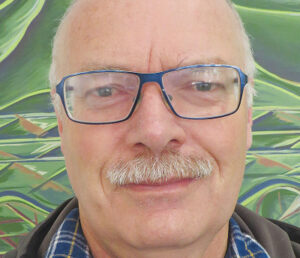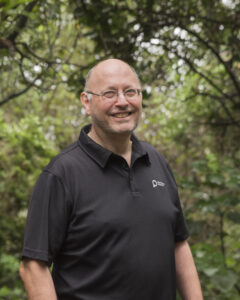It is not yet clear how the coalition partners have gelled their various policies on issues which affect the research science and innovation sector generally, or agricultural and horticultural science more specifically. But the Ministers with portfolios which relate to our work have been named.
Judith Collins is Minister of Science, Innovation and Technology and Todd McClay is Minister of Agriculture, Forestry, Hunting and Fishing. Both are ministers inside Cabinet. Outside of the Cabinet, Nicole Grigg is an associate agriculture minister with responsibility for horticulture, Andrew Hoggard (ACT) is Minister of Biosecurity and Food safety and an associate minister for agriculture, with responsibility for animal welfare and skills. Mark Patterson (NZ First) is also an associate minister for agriculture. Also outside Cabinet are Simon Watts (Climate Change); Penny Simmonds (Environment) and Chris Penk (Land information).
For officials who have been involved in the largest review of the country’s science system in 30 years, it will be back to the drawing board. Under the new government, the Te Ara Paerangi Future Pathways programme looks likely to be scrapped for a new, as yet unspecified, approach to the research, science and innovation funding system and restructuring public research institutions. Their approach to specific issues, such as climate change and genetic technologies, differed too.
While National has made plain it does not support the Hipkins Government’s science-sector reform programme, it has yet to detail an alternative. ACT has said it would replace Te Ara Paerangi Future Pathways science vision with a simpler and clearer set of priorities focussed on funding internationally credible scientific research for productivity and public good science.
Policies that affect agriculture include a rewriting of the Resource Management Act, a halt to implementation of Significant Natural Areas policy, and replacing the National Policy Statement for Freshwater Management to rebalance Te Mana o te Wai so it better reflects the interests of all water users.
Climate change policies will maintain a split-gas approach to methane and carbon dioxide through to 2050 and the science of methane and targets will be reviewed in 2024.
Laws on genetic engineering look to be liberalised, as signalled before the election, but without detail. National said it would remove the effective ban on gene editing and GMO technologies to help deliver on its climate change goals “and potentially unlock access to breakthrough technologies in medicine and conservation”. It might be expected that this will also apply to the wider Ag and Hort industries.
National has said it would establish a dedicated Biotech regulator to support access to the latest advance in science and innovation, while protecting New Zealanders against adverse outcomes. ACT said it would replace the Hazardous Substance and New Organisms Act with new biotech legislation to enable gene-editing technologies based on science, and assessed against the risk to the public. Harmonisation with equivalent jurisdictions would be a guiding principle – if something is acceptable to the EU, then an importer of a compound shouldn’t have to go through the same tests for New Zealand. Decisions should be made by a technically and scientifically competent regulator without political inference.
New Zealand First inferred a relaxation of the rules in its commitment to “incentivise the uptake of the emissions reduction mitigations, such as low methane genetics, and low methane producing animal food, by repurposing money funded by the emissions trading scheme revenue and funds earmarked for the purchase of overseas carbon credits.
Congratulations
Ecosystem research and the Ag and Hort science sector have been recognised in the winning of Marsden Fund grants and the Pickering Medal. Congratulations to those who won either funding or a medal. Regarded as the hallmark of excellence for research in New Zealand, The Marsden Fund supports researchers in science, engineering, maths, social sciences and the humanities to explore bold ideas that can have significant impact on the future of their discipline.
Marsden Fund Standard Grants were won by two University of Waikato projects:
• Understanding cross-boundary effects of biodiversity on ecosystem functioning
 |
 |
Principal Investigator Dr Frank Burdon and Associate Investigator Dr Andrew Barnes, from the University of Waikato, are exploring a new frontier in ecology: how biodiversity influences functioning across ecosystems. Their study will investigate the intimate connections between riparian zones and stream ecosystems mediated by food-web linkages. Their work will improve our ability to conserve, restore and manage key flora, fauna and ecosystems at local and larger spatial scales.
• Turning up the heat on soil food webs: will global warming erode ecosystem resilience?
Dr Andrew Barnes will lead his own investigation into how global warming and other climate change impacts like drought could threaten the resilience of ecosystems. Few studies have considered the combined influence of interacting climate disturbances, which are expected to be more common in the future. With co-Principal Investigator Dr Alster (Lincoln University) and Professor Schipper, Dr Barnes will look at soil ecosystems and the complex network of interacting organisms within the soil from microbes to insects. Working alongside mana whenua they’ll use geothermally heated soil plots in the central North Island as a model of global warming.
• The Pickering Medal recognises excellence and innovation in the practical application of technology. It has been awarded to a team from AgResearch (key contributors Dr Suzanne Rowe, Dr John McEwan, Dr Peter Janssen, and Dr Graeme Attwood) for breeding sheep which emit less methane, and for determining the potential reduction of methane emissions if these sheep can be farmed throughout New Zealand. AgResearch’s elite “research flock 2638” has been strategically developed over three decades from sheep representative of New Zealand’s national flock to cumulatively enhance specific traits. In 2021, the research team recorded a drop of over 2% in methane emissions from flock 2638, while continuing to improve performance in other traits that are relevant to industry, such as the quality of meat and wool.The researchers estimate that incorporation of this low-methane breeding trait into New Zealand’s entire sheep flock would reduce methane by 0.5 to 1% annually, with ongoing reductions from further breeding.
 |
 |
 |
 |
Top – Dr Suzanne Rowe / Dr John McEwan
Bottom – Dr Peter Janssen / Dr Graeme Attwood
Photos from NZIAHS Awards presented in 2023 can be viewed HERE
| Kiwifruit Symposium
Approaching rapidly is the XI International Symposium on Kiwifruit, The conference will be co-hosted by Plant & Food Research and Zespri under the auspices of the International Society for Horticultural Science (ISHS). You can register HERE |

To wrap up this newsletter, festive greetings to you all and best wishes to you for both a merry Christmas and a happy New Year. I hope the New Year will at least bring some certainty about what lies ahead for our sector and career prospects. But that’s for the new prime minister and his government – not Father Christmas – to deliver.
Jeremy Burdon
NZIAHS President












